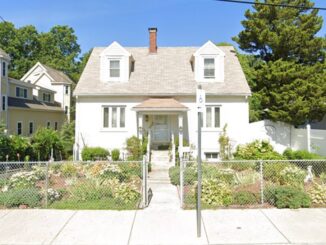
The Federal Housing Administration (FHA) on Tuesday issued a request for feedback from the public on how it can increase access to small balance mortgages through its single-family mortgage insurance programs.
The Department of Housing and Urban Development (HUD) back in April said it would be taking a hard look at small balance mortgages, which typically have balances less than $200,000 and are hard to find.
“The input we receive through this RFI will help us better understand how FHA can make small mortgages more broadly available and affordable for those who need them,” said FHA Commissioner Julia Gordon in a press statement. “The RFI responses will help drive our programmatic work to increase access to homeownership and to close the racial homeownership gap.”
The RFI, published in the Federal Register, asks questions related to the current availability of small mortgage financing, barriers and disincentives to small mortgage lending transactions, as well as changes to policies or processes that would encourage more origination of such products.
In a recent analysis by the Pew Charitable Trusts, researchers noted that a lack of small mortgage products pushes some borrowers into using alternative financing, which generally comes with far higher interest rates relative to traditional mortgages and fewer consumer protections in the case of delinquency or default.
Due to high fixed origination costs, many mortgage lenders shy away from offering mortgages under $150,000.
The Urban Institute in 2021 found that only one in four low-cost homes sold was likely to be financed with a mortgage. The inaccessibility of small-dollar mortgage loans is a key barrier to homeownership for many low- and moderate-income families, leaving them “continuously rent burdened with few options for upward mobility and wealth building,” researchers said.
Black and Hispanic families are disproportionately affected, and the FHA’s programs have fallen short, some housing groups have argued.
Notably, denial rates for small-dollar mortgage loans are higher than for larger loans in both government and conventional channels.
“Lack of creditworthiness is not the reason for the higher denial rates for small-dollar loans,” the Urban Institute’s Laurie Goodman and Bing Bai wrote in 2018. “Instead, the lower return on investment for smaller mortgages does not provide incentives for government and conventional lenders to provide access to credit.”
Suggestions to improve the small balance lending in recent years includes more flexible underwriting, homebuyer education, a reduction in fees, automated valuations and more utilization of community development financial institutions (CDFIs) and community banks.
Michael Loftin, CEO of Homewise, whose work focuses on sustainable homeownership, told HousingWire in July that HUD should take a cue from the government-sponsored enterprises. Fannie Mae and Freddie Mac, although they rarely back small-dollar loans, subsidize lenders for originating them.
“Freddie Mac and Fannie Mae give [lenders] a little bump on their origination fee to encourage small-dollar lending,” said Loftin. “It’s an acknowledgement that you’re making less on a small-dollar loan.”
The FHA will be soliciting feedback through Dec. 5, 2022.



